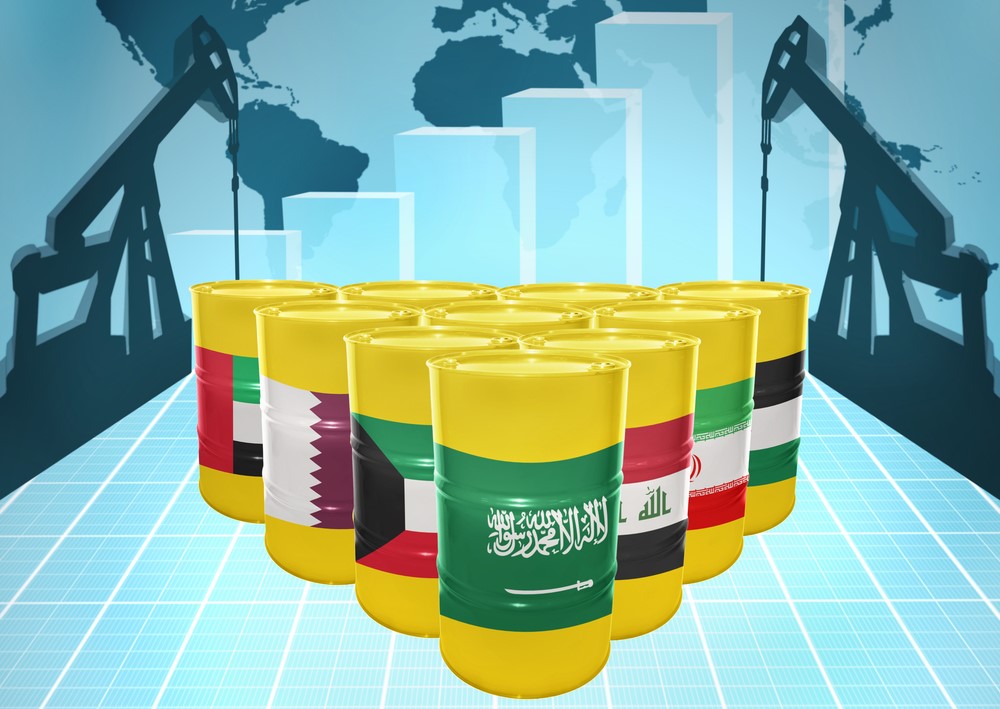Political uncertainty and volatile oil prices are weighing heavily on economic growth in the Middle East this year, according to a new report released Monday by the International Monetary Fund.
The report, which looks at the economies of 23 countries spanning North Africa, the Levant, the Persian Gulf, but also Djibouti, Somalia, Afghanistan and Pakistan, predicts that overall growth across these nations is expected to slowdown from close to 2% last year to about 1.5% in 2019.
Inflation is expected to remain unchanged at close to 10%.
A closer look, however, shows sharp variations from country to country.
Iran, for example, is expected to be among the hardest hit this year. The IMF expects a 6% retraction in economic growth in 2019 — and that does not factor in the recent announcement by the U.S. that waivers on Iranian oil exports will expire next week, further deepening Iran’s economic recession. Last year, Iran’s economy retracted by nearly 4% and inflation remains high.
“The removal of waiver will affect more the recession,” said Jihad Azour, the IMF’s Mideast and Central Asia department director. “A negative growth of 6% has an impact on poverty, social protection and also on jobs.”
Azour said one of the most pressing issues facing Iran with the impact of U.S. sanctions is the need to align the official currency exchange rates for the Iranian rial with black market rates.
Wealthy Gulf Arab oil exporters face their own sets of challenges, namely diversifying their economies away from reliance on oil exports for revenue in the face of sharp ebbs and flows in prices over the past six months.
The international lender said the six Gulf Cooperation Council countries of Saudi Arabia, the United Arab Emirates, Kuwait, Bahrain, Oman and Qatar will also need to create 1 million new jobs annually for at least the next five years just to keep unemployment rates from climbing.
For these countries, overall economic growth is expected to remain basically unchanged at around 2% in 2019. Specifically, non-oil growth is projected to pick up slightly from last year at closer to 3% in 2019, although fiscal deficits will also expand somewhat from last year.
More specifically, Saudi Arabia’s economic growth is expected to slow down from 2.2% in 2018 to 1.8% this year.
For oil importing countries like Egypt, Jordan, Lebanon and others in the region, inflation overall is expected to remain mostly unchanged at around 10% and growth is expected to slow from just over 4% last year to 3.6% in 2019. That average is mainly driven by Pakistan, where economic growth is expected to slow from about 5% last year to close to 3% this year.
Meanwhile, protests in Algeria and Sudan, conflicts in Libya, Syria and Yemen, tensions between India and Pakistan and shaky peace talks in Afghanistan “may increase investors’ perception of risk for the whole region, leading to capital outflows and exchange rate pressure,” the IMF noted.
“This may feed back into further oil price volatility and regional uncertainty,” the report said.
Oil prices climbed above $80 a barrel in October, then fell below $50 a barrel in January. The IMF is factoring an average of around $65 a barrel in the medium term. The organization says swings in oil prices are being impacted by global trade tensions, U.S. sanctions on Iranian oil exports and oil production cuts by OPEC and other oil producing nations.
The unrest in countries like Algeria and Sudan is heavily rooted in economic discontent over unemployment, corruption and poor public services.
For oil importing countries, unemployment remains stubbornly high at close to 25% among young people, the IMF said.
© The Associated Press. All rights reserved.
